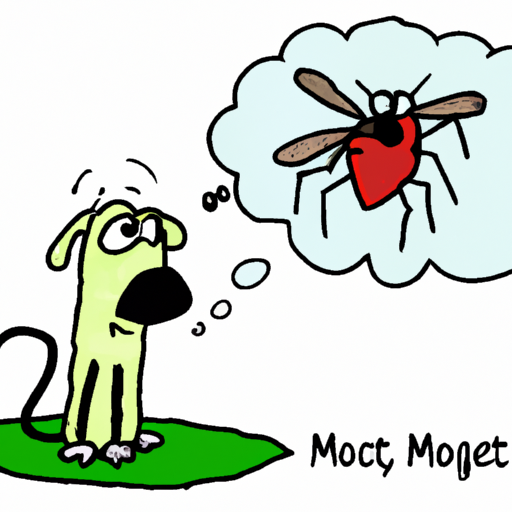Understanding Heartworm Disease
Heartworm disease is a severe and potentially lethal condition in dogs, caused by parasitic worms living in the heart and pulmonary arteries of an affected animal. Heartworms are transmitted from one host to another through mosquitoes, acting as a vector.
Before we delve deeper into how dogs contract heartworm, let’s first understand the lifecycle of heartworms:
- The Adult Stage: Adult heartworms live in the heart, lungs, and associated blood vessels of an infected animal where they mate and produce offspring, known as microfilariae.
- The Microfilariae Stage: These microfilariae circulate in the bloodstream until they are picked up by a mosquito during a blood meal.
- The Intermediate Stage: Inside the mosquito, the microfilariae mature into infective larvae.
- The Infective Larvae Stage: When the mosquito bites another host, the infective larvae enter the new host’s body and eventually mature into adult heartworms, and the cycle repeats.
The Role of Mosquitoes in Heartworm Transmission
Mosquitoes play a critical role in the heartworm life cycle. When a mosquito bites an infected dog, it sucks up the microfilariae along with the dog’s blood. Over a period of 10 to 14 days, these microfilariae mature into infectious larvae within the mosquito. When the mosquito bites another dog, it injects these infectious larvae into the dog’s body. The larvae then continue to mature and, after about six months, become adult heartworms.
The Risk Factors for Heartworm Infection
Several factors can increase a dog’s risk of contracting heartworm disease:
- Geographic Location: Areas with a high mosquito population have higher rates of heartworm infection.
- Outdoor Exposure: Dogs that spend a lot of time outdoors are more at risk.
- Lack of Preventive Medicine: Not using heartworm preventive medication increases the risk.
Preventing Heartworm disease in Dogs
The good news is that heartworm disease is preventable, and prevention is far easier, safer, and more economical than treatment. Preventive measures include:
- Regular use of preventive heartworm medication.
- Reducing exposure to mosquitoes.
- Regular testing for heartworm.
Frequently Asked Questions
Q: Can humans get heartworm from their dogs?
A: Although heartworms do infect humans occasionally, the parasite is not designed to complete its life cycle in a human host and typically dies before becoming an adult.
Q: Can my dog get heartworm disease if it only stays indoors?
A: Yes, mosquitoes can get indoors, so even entirely indoor pets are at risk and should be on heartworm preventive medication.
Q: Can heartworm disease be treated?
A: Yes, heartworm disease can be treated, but it is a complicated and expensive process, which can be hard on the dog. Prevention is much better than treatment.



